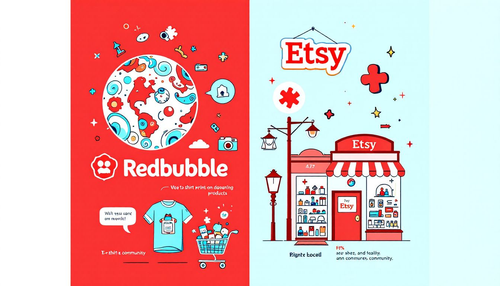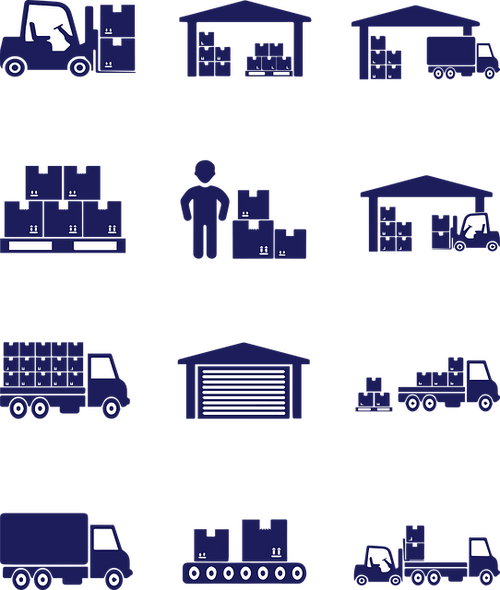
A Step-by-Step Guide to Making Money Online from Home
Share
Ever thought about making some extra cash without leaving your house? You're not alone. With the internet, there's a whole world of opportunities to earn money right from your living room - whether it's freelancing, starting an online store or even teaching a class, there's something for everyone. The best part? You can do it all in your pajamas... But, like anything, it takes a bit of know-how and some effort to get started so let's break it down and see how you can start making money online from home.
Making Money Online from Home - Key Takeaways
- Understand the basics before jumping into online income opportunities.
- Choose paths that align with your skills and interests for better success.
- Freelancing and e-commerce are popular ways to earn money online.
- Blogging and social media can also be monetized effectively.
- Always be cautious of scams when exploring online money-making options.
Understanding the Basics of Making Money Online from Home

Defining Online Income Streams
Making money online isn't just a fad—it’s a legitimate way to earn income with just an internet connection. The beauty of online earning lies in its flexibility, offering opportunities for both active and passive income streams.
- Active Income Streams: These require consistent effort and time. Examples include freelance writing, graphic design, virtual assistance, or online tutoring. You get paid for the work you do today, making it an ideal way to make money online fast if you're willing to put in the effort.
- Passive Income Streams: These involve upfront effort but offer long-term earning potential. Think affiliate marketing, starting an online business, or creating and selling digital products like eBooks or online courses. With time, these can grow into substantial income sources, earning you money even when you're not actively working.
The key is to evaluate your time, resources, and goals to decide which income stream aligns with your lifestyle. Whether you need money online today or are building a long-term business, there's a path for you.
Identifying Your Skills and Interests
Knowing what you’re good at and passionate about can shape your journey toward making money online. Ask yourself:
- Are you skilled in writing, graphic design, or programming?
- Do you enjoy teaching, creating videos, or managing social media accounts?
- Do you have specific knowledge or hobbies that could be turned into an online business?
List your skills and passions. From there, explore how you can monetize them. For example:
- Writers can explore content creation, copywriting, or starting a blog.
- Designers can earn by creating logos, websites, or digital art.
- Teachers can offer virtual lessons or create educational content.
Your skills combined with the right online opportunities can help you turn your passions into profits.
Setting Realistic Expectations
Making money online is not an overnight success story. While it's tempting to believe claims about making money online fast, the reality is that consistent effort and a strong strategy are crucial.
Tips for Success:
- Start Small: Focus on one or two income streams initially. For instance, you could start freelancing while building an affiliate marketing business on the side.
- Stay Committed: Making money online today might not always be possible, but with persistence, you can build a steady income over time.
- Continue Learning: The online world evolves rapidly. Stay updated on trends, tools, and strategies in your niche to keep your online business thriving.
Patience and adaptability are key. While the journey may require dedication, the rewards—flexibility, independence, and financial growth—make it worthwhile.
Leveraging Technology for Online Income
One of the biggest advantages of earning money online is the accessibility provided by an internet connection and digital tools. Many platforms and software programs can help you streamline your efforts, whether you're freelancing, managing an online store, or running an affiliate marketing business.
- Freelancing Platforms: Websites like Upwork or Fiverr help you connect with clients worldwide.
- E-Commerce Tools: Platforms like Shopify or Etsy allow you to set up your online business quickly.
- Affiliate Marketing Networks: Programs like Amazon Associates or ShareASale let you earn passive income through affiliate links.
By leveraging these tools, you can maximize your earning potential and simplify the process of managing your income streams.
Building Trust and Credibility
To make consistent money online, you need to build trust with your audience or clients. Whether you're running an online business or offering services, credibility is essential.
- Create a Professional Online Presence: Have a website, portfolio, or LinkedIn profile that showcases your skills and achievements.
- Deliver Quality Work: Meeting deadlines and exceeding client expectations can lead to repeat business and referrals.
- Engage Your Audience: For online businesses, staying active on social media and responding to customer feedback builds trust and loyalty.
When people trust you, they're more likely to invest in your services or products, ensuring a steady stream of income.
Exploring Freelancing Opportunities

Freelancing is a fantastic way to earn money from home. It offers flexibility and the chance to do what you love. Let's break it down step by step:
Popular Freelancing Platforms
To get started, you need to know where to look. Freelancing platforms are your gateway to finding work. Some of the most popular ones include:
- Upwork: Great for a wide range of skills.
- Fiverr: Perfect for creative gigs.
- Freelancer: Good for both short and long-term projects.
These platforms connect you with clients from all over the world. It's like having a global office right at home.
Building a Strong Portfolio
Your portfolio is your online resume. It's what potential clients will look at to decide if they want to hire you. Here’s how to make it shine:
- Showcase your best work: Quality over quantity.
- Keep it updated: Regularly add new projects.
- Include testimonials: Let past clients speak for you.
A strong portfolio can open doors to more opportunities.
Tips for Landing Your First Gig
Getting your first freelancing job can be tough, but it’s not impossible. Here are some tips to help you out:
- Start with small projects: Gain experience and build confidence.
- Set competitive rates: Attract clients while you’re building your reputation.
- Network: Connect with other freelancers and potential clients.
Freelancing is more than just a job; it's a chance to turn your skills into a thriving online career. Whether you're into writing, graphic design, or programming, there are flexible opportunities to earn money from home. Dive in and explore the possibilities.
Diving into E-commerce and Dropshipping

Choosing the Right Products to Sell
Starting an online store can be exciting, but you need the right products to catch people's attention. Think about what people need or want right now. You might want to look at trends or check out what’s popular on social media. Picking the right products is like setting the foundation for your store's success. Keep an eye on the competition and try to find a unique angle for your products.
Setting Up Your Online Store
Once you know what you're selling, it's time to set up shop. There are platforms like Shopify or WooCommerce that make it pretty easy. Here’s a quick rundown to get you started:
- Choose a platform that fits your budget and needs.
- Design your store to match your brand’s vibe.
- Add product descriptions and prices, making sure everything is clear and easy to find.
I find Shopify the most user friendly, it also has a free trial so you can try it and cancel if it is not for you.
Try Shopify for Free
Marketing Your E-commerce Business
Now that your store is up and running, you’ve got to let people know about it - social media is your friend here. You can reach out to potential customers by posting regularly and engaging with your audience. Think about running some ads to boost your visibility. Another idea is to collaborate with influencers who can help spread the word about your products.
Making money online with e-commerce and dropshipping isn't just about selling stuff; it's about building relationships with your customers and offering them something they can’t find anywhere else. Keep learning and adapting to what your audience wants, and you'll be on the right path.
Creating and Monetizing a Blog

Selecting a Profitable Niche
Starting a blog begins with choosing the right niche. It's essential to find a topic that not only interests you but also has a potential audience. Think about your hobbies, skills, or any unique knowledge you possess. Once you've brainstormed, research to see if there's a demand for that niche. Tools like Google Trends or keyword research tools can help gauge interest. A well-chosen niche can set the foundation for your blog's success.
Writing Engaging Content
Once your niche is decided, the next step is to create content that grabs attention. Your writing should be clear, relatable, and informative. Mix up your content with lists, personal stories, and how-tos. Remember, consistency is key. Aim to post regularly to keep your audience engaged. An editorial calendar can help keep you on track.
Blogging isn't just about sharing your thoughts; it's about connecting with readers. Make each post count.
Monetization Strategies for Bloggers
When it comes to making money, bloggers have several options. Here are a few ways to start earning:
- Affiliate Marketing: Promote products related to your niche and earn a commission for every sale made through your referral.
- Sponsored Posts: Companies pay you to write about their products or services.
- Ad Revenue: Use platforms like Google AdSense to display ads on your blog and earn money based on clicks or impressions.
- Sell Digital Products: E-books, courses, or printables can be sold directly from your blog.
Each method has its pros and cons, so it's wise to experiment and see what works best for your audience. Explore these steps to build readership and generate income effectively.
Leveraging Social Media for Income

Building a Personal Brand
Creating a strong personal brand on social media is like setting the stage for a successful online venture. Your brand is your identity—it's what sets you apart from the crowd! Start by deciding what you want to be known for. Are you the go-to person for travel tips, or maybe you have a knack for cooking? Whatever it is, make sure it's something you're passionate about. Consistency is key here; stick to your theme across all your profiles use the same profile picture, handle and bio to make it easier for people to find and recognize you.
Engaging with Your Audience
Once you've established your brand, it's time to connect with your audience. Social media is a two-way street, so don't just broadcast your message—engage with your followers. Ask questions, respond to comments, and participate in conversations. This interaction not only builds trust but also fosters a sense of community. Remember, people are more likely to support someone they feel connected to.
Exploring Sponsorship and Partnership Opportunities
When your brand starts gaining traction, opportunities for sponsorships and partnerships may come your way. Brands often look for influencers to promote their products, and this can be a lucrative income stream. But don't jump at every offer. Choose partnerships that align with your brand and values. Authenticity is crucial; your audience can tell when you're not being genuine. If you're into fashion, partner with clothing brands that match your style. If tech is your thing, collaborate with gadget companies. The right partnerships can enhance your credibility and expand your reach.
Social media isn't just about posting pretty pictures—it's a powerful tool for building a business. By focusing on your personal brand, engaging with your community, and choosing the right partnerships, you can turn your social media presence into a thriving income source. Remember, it's not just about the numbers; it's about creating meaningful connections and opportunities.
Participating in Online Surveys and Market Research
Engaging in online surveys and market research can be a simple way to earn some extra cash from the comfort of your home. Many companies are willing to pay for your opinion, which helps them improve their products and services. Here's how you can make the most of these opportunities.
Finding Legitimate Survey Sites
The first step is to find genuine survey sites. With so many options out there, it can be tricky to spot the real ones. Look for platforms that have been around for a while and have a good reputation. Check out user reviews and ratings to see what others are saying. One such platform is Inbox Dollars, which offers cash rewards for participating in surveys and polls.
Maximizing Your Earnings
To get the best out of online surveys, it's important to sign up for multiple platforms. This increases your chances of receiving more surveys. Here are some tips to maximize your earnings:
- Complete your profile thoroughly: This helps survey sites match you with relevant surveys.
- Check for new surveys regularly: Some surveys are only available for a short time.
- Be consistent and patient: Earnings might be small initially, but they add up over time.
Understanding the Limitations
While online surveys can provide extra income, they shouldn't be seen as a full-time job replacement. Surveys can vary in length and pay, and sometimes, you might not qualify for all of them. It's more of a side hustle than a main gig.
Participating in online surveys is an easy way to earn some extra bucks without leaving your home. While it's not a get-rich-quick scheme, it offers flexibility and can be a fun way to share your opinions on different topics.
Investing in Stocks and Cryptocurrencies from Home
Basics of Online Trading
Investing from the comfort of your own home has never been easier. Online trading allows you to buy and sell stocks or cryptocurrencies with just a few clicks. Before diving in, it's important to understand how the market works. Stocks represent ownership in a company, while cryptocurrencies are digital assets using blockchain technology. Both can offer potential returns, but they come with risks.
Choosing the Right Platforms
Selecting the right platform is crucial for successful online trading. For stocks, platforms like E*TRADE and Robinhood are popular among beginners. If you're interested in cryptocurrencies, you'll need to choose which one to invest in and decide on a platform, such as Coinbase or Binance. Each platform offers different features, fees, and security measures, so take your time to compare them.
Risk Management Strategies
Investing always involves risk, but managing that risk is key to protecting your investments. Start by diversifying your portfolio; don't put all your money into one stock or cryptocurrency. Consider setting stop-loss orders to automatically sell an asset when it reaches a certain price, minimizing potential losses. Also, stay informed about market trends and news, as these can impact your investments significantly.
Investing in stocks and cryptocurrencies can be a rewarding venture, but it's important to approach it with caution and knowledge. Always do your research, and never invest more than you can afford to lose.
Teaching and Tutoring Online
Platforms for Online Teaching
Teaching online is a great way to share knowledge while making money. There are many platforms where you can start teaching. Some popular ones include:
- Udemy: A marketplace for teaching anything from programming to cooking.
- Teachable: This platform lets you build your own teaching website.
- VIPKid: Focuses on teaching English to kids in China.
Each platform has its own setup process, so it's good to explore a few before deciding where to start.
Creating Effective Lesson Plans
Creating a lesson plan for online teaching is a bit different than for a traditional classroom. Here are some tips:
- Know Your Audience: Tailor your lessons to the age and skill level of your students.
- Use Clear Objectives: Set clear goals for what you want your students to learn.
- Interactive Elements: Include videos, quizzes, and discussions to keep students engaged.
Online lessons should be engaging and easy to follow. Always be ready to adjust based on student feedback.
Engaging with Students Virtually
Virtual engagement can be tricky, but it's important for effective teaching. Here’s how to connect with your students:
- Regular Check-ins: Schedule time to talk with students individually or in small groups.
- Interactive Sessions: Use tools like polls or breakout rooms to make sessions lively.
- Feedback: Encourage students to give feedback on lessons and assignments.
Teaching online requires patience and adaptability. The more you connect with your students, the more successful your teaching will be.
Exploring Affiliate Marketing

Affiliate marketing is a popular way to make money online, where individuals earn a commission by promoting products from other companies. It's a flexible option for those who want to work from home and have the knack for marketing.
Understanding Affiliate Programs
Affiliate programs are partnerships between a person and a company. The individual promotes the company's products and earns a commission for each sale made through their referral link. These programs can vary in terms of commission rates, payment methods, and the types of products offered. Some programs might pay per sale, while others might offer a commission for leads or clicks.
- Commission Rates: These can range from 5% to 50% or more, depending on the product and the company.
- Payment Methods: Common methods include PayPal, bank transfer, or checks.
- Product Types: You can promote anything from digital products like e-books and software to physical goods like clothing and electronics.
Choosing the Right Products to Promote
Picking the right products is crucial for success in affiliate marketing. It's important to choose products that align with your interests and that you believe in. Here are some tips:
- Know Your Audience: Understand what your audience needs or wants and choose products that meet those needs.
- Research Products: Look for products with good reviews and a strong market presence.
- Consider the Commission Rate: Higher commission rates can lead to more earnings, but ensure the product is of high quality.
Tracking and Analyzing Your Success
To improve your affiliate marketing efforts, it's essential to track and analyze your performance. This involves looking at metrics like click-through rates, conversion rates, and overall earnings. Use tools like Google Analytics or affiliate dashboards to monitor these metrics.
By understanding your data, you can make informed decisions on which products to promote and how to optimize your marketing strategies.
Affiliate marketing can be a rewarding way to earn money online if done right. It's all about choosing the right products, understanding the programs, and continuously analyzing your performance to make necessary adjustments. For those interested, affiliate marketing involves earning a commission by promoting products from other individuals or companies.
Developing and Selling Online Courses
Identifying Your Expertise
Creating an online course starts with knowing what you can teach. It's about finding that sweet spot where your interests and skills meet. Think about your hobbies, work experience, or any specialized knowledge you have. This is where your course idea will come from. Knowing your strengths is the first step to creating a course that people want to buy.
- List your skills and interests.
- Consider what people often ask you for help with.
- Look for gaps in the market that you can fill.
Sometimes, the best course ideas come from combining different areas of expertise. Identify overlapping interests and expertise to find a topic that can really connect with people.
Creating Compelling Course Content
Once you've got your topic, it's time to plan your course. You want your content to be engaging and easy to follow. Break down your topic into smaller, digestible modules. This makes it easier for your students to learn at their own pace.
- Create an outline of your course.
- Decide on the format: video, text, or a mix?
- Use real-life examples to make your material relatable.
Marketing Your Course Effectively
After building your course, you need to get the word out. Marketing is key to selling your course. Social media, email lists, and word of mouth can all help.
- Use social media to share insights and build interest.
- Offer a free preview to attract potential students.
- Encourage reviews and testimonials from your first students.
Marketing isn't just about selling; it's about connecting with students who will benefit from what you offer. Remember, the more people know about your course, the more likely they are to enroll.
Utilizing Remote Work Opportunities
In today's world, remote work has become more than just a trend—it's a way of life for many. People are swapping the daily commute for a cozy home office, and it's changing how we think about work.
Finding Remote Job Listings
The first step to landing a remote job is knowing where to look. There are plenty of websites dedicated to remote work opportunities. Remote job boards are your best friend—they list a wide range of positions across various industries. Don't forget to check out company websites directly; some firms prefer to post jobs on their own platforms. Networking is also key. Reach out to former colleagues or join online communities where remote work is a hot topic.
Preparing for Virtual Interviews
Interviewing for a remote position isn't quite the same as in-person interviews. It's all about making a connection through the screen. Make sure your tech is up to snuff—nothing worse than a video call dropping out. Dress the part, even if you're just in your living room. Confidence and clear communication can set you apart from other candidates. Practice your pitch and be ready to talk about your previous remote work experience, if you have any.
Balancing Work and Home Life
Working from home sounds great until you realize your office is also your living room. It's easy to blur the lines between work and personal time. Setting boundaries is super important. Create a dedicated workspace, even if it's just a corner of your room. Stick to a schedule—start and end your workday at the same time. This helps to keep your work-life balance in check. Take regular breaks to stretch and clear your mind. Remember, just because you're home doesn't mean you have to be "on" 24/7.
Embracing remote work can be a game-changer, offering flexibility and the chance to work in a comfortable environment. But it also requires discipline and a bit of planning to make it truly work for you.
Exploring Passive Income Streams

Passive income is like that friend who always has your back, even when you're not paying attention. It's money that rolls in without you having to hustle day in and day out. Understanding passive income can be the key to financial freedom. Let's break down how you can start earning passively.
Understanding Passive Income
Passive income isn't just a pipe dream; it's real money flowing into your account with minimal ongoing effort. Think of it as planting a tree. You put in the work upfront, and then it grows and bears fruit year after year. This could be anything from earning royalties on a book to renting out property. The idea is to set up a system that keeps generating income with little day-to-day involvement.
Investing in Real Estate Crowdfunding
Real estate crowdfunding is a way to get into the property market without having to buy a whole building. You can invest small amounts of money in real estate projects and earn a share of the profits. It's like being a mini-landlord without the headaches of managing tenants. Here's how you can get started:
- Research Platforms: There are several online platforms where you can invest in real estate crowdfunding. Do your homework to find one that suits your needs.
- Understand the Risks: Like any investment, real estate crowdfunding comes with risks. Make sure you're aware of them before diving in.
- Start Small: Don't put all your eggs in one basket. Start with a small investment and see how it goes.
Creating Digital Products for Sale
Digital products are things like e-books, online courses, or even music files that you can sell online. Once you create them, they can keep selling without much additional work. Here's a quick guide to getting started:
- Identify Your Skills: What are you good at? Can you turn that into a digital product?
- Create the Product: This could be writing an e-book, recording a course, or composing music.
- Market Your Product: Use social media, email lists, and other online platforms to get the word out.
"Passive income is not about working harder, but smarter. It's about setting up systems that work for you, even when you're not working."
By understanding and exploring these passive income streams, you can start earning money without the constant grind. It's about working smarter, not harder, and letting your money do some of the heavy lifting for you.
Wrapping It Up
So there you have it, folks. Making money online from home isn't just a dream anymore; it's something you can actually do. Whether you're selling stuff, freelancing, or starting a blog, there's a way for everyone to get in on the action. Sure, it might take a bit of time and effort to get things rolling, but once you do, the possibilities are pretty much endless. Just remember to stay patient, keep learning, and don't be afraid to try new things. Who knows? This could be the start of something great. Good luck on your journey!
Further Reading on Affiliate Marketing
Blogging your way to financial freedom
Crafting the Perfect Blog Logo
Further Reading for your Side Hustles
Top Side Hustles to do from your Phone
Frequently Asked Questions
How can I start making money online from home?
Begin by identifying your skills and interests. Explore various online income streams like freelancing, e-commerce, or content creation.
What are some popular freelancing platforms?
Some popular platforms for freelancers include Upwork, Fiverr, and Freelancer. These sites offer a range of job opportunities.
How do I choose the right products for dropshipping?
Research trending products and consider your target audience. Choose items that have a good profit margin and are in demand.
How can I make money through blogging?
Select a niche you're passionate about, create engaging content, and use strategies like ads or affiliate marketing to earn money.
What is affiliate marketing?
Affiliate marketing involves promoting other people's products and earning a commission for each sale made through your referral link.
Can I make money with online surveys?
Yes, you can earn small amounts by completing surveys. Look for legitimate sites and be aware of the limitations.
What should I know before investing in stocks or cryptocurrencies?
Learn the basics of trading, research platforms, and understand the risks involved. Start with small investments to minimize risk.
How do I find remote work opportunities?
Search for remote job listings on platforms like LinkedIn, Indeed, or Remote.co. Tailor your resume for virtual roles and prepare for online interviews.













































































































